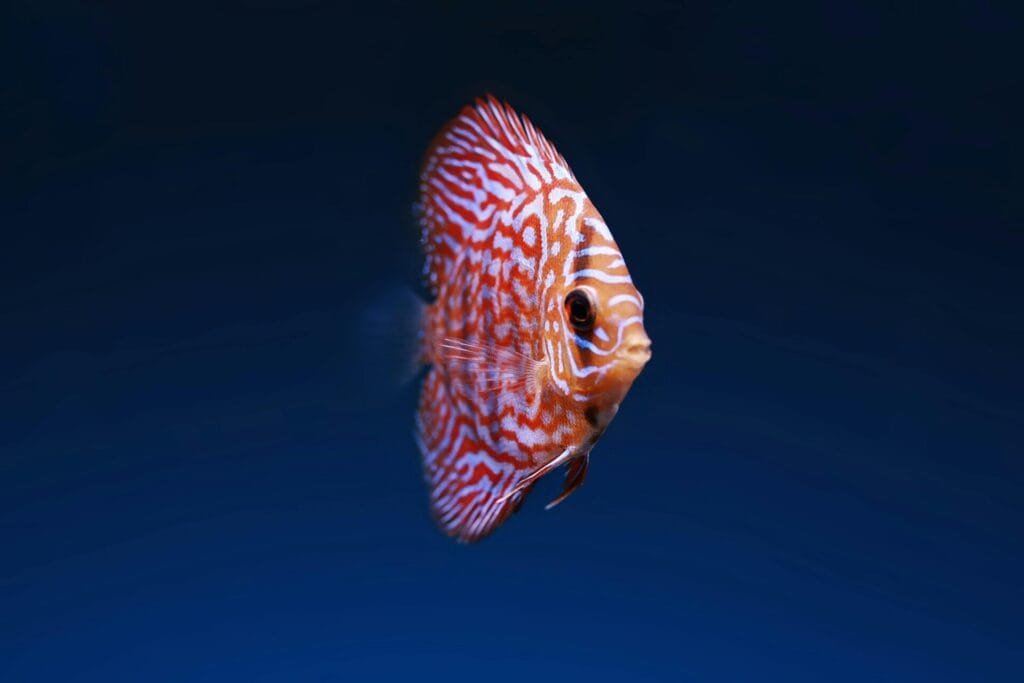Have you ever wondered if betta fish are smart? Well, prepare to be amazed because these vibrant aquatic creatures possess a surprising level of intelligence. While betta fish are known for their stunning colors and feisty personalities, their cognitive abilities often go unnoticed. However, studies have shown that betta fish have the capacity for learning and memory that rivals some mammals.
Contrary to popular belief, betta fish have a memory that extends beyond a few seconds. They can recognize their owners and exhibit behaviors that showcase their intelligence and memory capabilities. But it doesn’t stop there – betta fish can also be trained to perform tricks, demonstrating their cleverness and mental capacity.
Understanding the behavior and intelligence of betta fish is crucial in creating a stimulating environment for these fascinating creatures. By providing mental stimulation and enrichment, we can enhance their overall well-being and unlock their full potential.
Betta Fish Memory and Recognition
Betta fish are often underestimated when it comes to their memory abilities. Contrary to popular belief, these captivating creatures possess a memory that extends beyond a few seconds. In fact, they showcase the remarkable capability to recognize their owners and recall information stored in their minds.
When betta fish are familiar with their owners, they exhibit an exciting behavior—they swim towards the glass of their tank when approached. This recognition and response showcase their memory and ability to recall certain individuals who have interacted with them before.
This remarkable aspect of betta fish intelligence can be attributed to their ability to form associations between specific cues or stimuli and subsequent actions or outcomes. Just like humans and other animals, betta fish have the capacity to store information and retrieve it when relevant. This intelligence and memory capacity make them unique and fascinating pets to observe and interact with.
| Key Points | Examples |
|---|---|
| Betta fish possess memory beyond a few seconds | Recognizing their owners |
| Ability to form associations between cues and actions | Swimming towards the glass when approached by their recognized owners |
| Impressive memory capacity for an aquatic creature | Recalling stored information |
Associative Learning in Betta Fish
Betta fish, also known as Siamese fighting fish, possess a fascinating ability for associative learning. Similar to the famed experiments conducted by Ivan Pavlov with his dogs, betta fish can connect specific actions with particular outcomes. This remarkable cognitive skill demonstrates their aptitude for adapting to their surroundings and learning from their experiences.
Through associative learning, betta fish can form connections between stimuli and responses. For example, by associating the sound of a bell with feeding time, they learn to anticipate food when they hear the bell. This kind of learning allows them to adjust their behavior based on their environment, showcasing their impressive problem-solving abilities and intelligence.
With appropriate training techniques, betta fish can even be taught to perform tricks and navigate mazes, further highlighting their cognitive capabilities. Training betta fish not only provides mental stimulation but also strengthens the bond between fish and owner.
To enhance their cognitive development and train betta fish effectively, it is important to provide a structured learning environment. Consistency is key, as betta fish learn through repetition and reinforcement. By using positive reinforcement, such as rewarding desired behaviors with food, betta fish can be trained to perform various tasks and showcase their intelligence.
Additionally, using visual cues like colorful objects or target sticks can help betta fish associate specific actions with desired outcomes. By repeating these associations consistently, betta fish can make cognitive connections that allow them to anticipate and respond to different stimuli.
Training betta fish not only enriches their lives but also provides mental stimulation that keeps them engaged and content. It is important to approach training with patience, as each fish learns at its own pace. By understanding and harnessing their associative learning abilities, betta fish can thrive in an environment that fosters both physical and mental well-being.
The Benefits of Training Betta Fish:
- Stimulates their cognitive abilities and keeps them mentally engaged
- Strengthens the bond between fish and owner
- Provides an opportunity for interactive play and enrichment
- Showcases the intelligence and problem-solving skills of betta fish
Behavioral Traits of Betta Fish
Betta fish are known for their unique behavioral traits that contribute to their intelligence. Understanding these behaviors is crucial for fish owners to provide proper care and create an environment that promotes their mental well-being.
Gill Flaring to Show Dominance
One intriguing behavior exhibited by betta fish is gill flaring. When a male betta fish feels threatened or wants to establish dominance, it will display an impressive show of aggression by flaring its gills. This behavior is a way for betta fish to communicate and establish their authority in their territory.
Bubble Nesting as a Sign of Readiness to Breed
Another fascinating behavior observed in betta fish is bubble nesting. Male betta fish build nests at the water’s surface using bubbles. This behavior is an indication that the male is ready to breed. The nest helps protect the eggs once the female lays them, showing the male’s commitment to reproductive success.
Courtship Rituals and Displays
During the courtship process, betta fish engage in elaborate displays to attract potential mates. These displays often involve vibrant colors, intricate fin movements, and flaring behavior. Male betta fish showcase their beauty and fitness to entice females and ensure successful mating.
Understanding these unique behavioral traits of betta fish enables fish owners to provide a suitable environment that accommodates their natural tendencies. By creating an environment that supports their behavioral needs, betta fish can thrive and exhibit their full intelligence and beauty.
Signs of Boredom in Betta Fish
Betta fish, like any intelligent creature, can experience boredom. When they are not mentally stimulated or provided with an engaging environment, they may display signs of stress. Recognizing these signs is important in order to address their boredom and provide them with enrichment to keep them mentally stimulated and happy.
Common signs of boredom in betta fish:
- Loss of color: Bored betta fish may appear dull or pale compared to their usual vibrant colors.
- Decreased appetite: A lack of interest in food can indicate boredom and disinterest in their surroundings.
- Tail biting: When bored, betta fish may engage in tail biting as a form of self-directed aggression.
Creating a stimulating environment is essential to prevent boredom in betta fish. Providing them with a variety of activities and enrichment can keep their minds engaged and promote a happier, healthier betta fish.
One way to combat boredom is to incorporate live or silk plants in their tank. These plants not only add visual interest but also provide places for betta fish to explore and interact within their environment. Additionally, adding hiding spots, such as caves or tunnels, can give betta fish a sense of security and stimulate their natural instincts.
A proper feeding routine can also help prevent boredom. Rather than simply scattering the food on the water’s surface, consider using food puzzle toys that require betta fish to work for their meals. These toys not only provide physical exercise but also mental stimulation for betta fish.
By observing their behavior and adjusting their environment accordingly, you can ensure that your betta fish remains mentally stimulated, preventing boredom and promoting their overall well-being.
| Signs of Boredom | Ways to Address Boredom |
|---|---|
| Loss of color | Incorporate live or silk plants |
| Decreased appetite | Use food puzzle toys for feeding |
| Tail biting | Add hiding spots or caves |
Creating an Engaging Environment for Betta Fish
To keep betta fish mentally stimulated, it is important to create an engaging environment for them.
Here are some strategies to enhance their mental engagement and overall well-being:
- Rotate Decorations and Plants: Change up the tank’s decor by rotating decorations and plants every few weeks. This provides variety and visual stimulation for your betta fish.
- Use Different Colored Lights: Try using different colored lights in your betta fish tank to create new environments. This can alter the mood and atmosphere, making it more visually appealing.
- Incorporate Interactive Toys: Engage your betta fish in playtime by incorporating interactive toys such as a laser pointer or a ping pong ball. These toys can stimulate their mind and provide physical activity.
- Place the Tank in a Busy Area: Positioning the tank near a busy area of your house can provide social stimulation for your betta fish. They can observe the activities and movement, making them feel more connected to their surroundings.
Why an Engaging Environment Matters
An engaging environment is vital because it helps to prevent boredom and reduces stress in betta fish. When they are mentally stimulated, betta fish exhibit healthier behaviors and overall well-being.
By implementing these strategies, you can enrich your betta fish’s environment and provide them with the mental stimulation they need to thrive.
The Beauty and Care of Betta Fish
Providing proper care for betta fish is essential to their overall health and well-being. By understanding the needs of betta fish and providing them with appropriate care, their beauty and vibrancy can truly shine. Here are some key aspects to consider when it comes to betta fish care and tank setup:
Creating an Ideal Environment
Creating an ideal environment for betta fish is crucial for their well-being. Mimicking their natural habitat in a spacious aquarium is important. Consider incorporating live or silk plants, rocks, and driftwood to provide hiding places and create a visually appealing tank setup.
Maintaining Water Quality
Maintaining proper water quality is vital for the health of betta fish. It is recommended to keep the water temperature between 78 to 82 degrees Fahrenheit (25 to 28 degrees Celsius). Regularly monitor and maintain appropriate pH levels and ensure a clean and well-filtered tank environment.
Feeding Betta Fish
Feeding betta fish a balanced diet is essential to prevent obesity and related health issues. Offer a variety of high-quality betta fish pellets, flakes, and occasional treats like freeze-dried or frozen bloodworms. Avoid overfeeding, as it can lead to digestive problems and compromised water quality.
Betta Fish Care Essentials
| Aspect | Care Tips |
|---|---|
| Tank Setup | Create a spacious aquarium with live or silk plants, rocks, and driftwood. |
| Water Quality | Maintain water temperature between 78 to 82 degrees Fahrenheit (25 to 28 degrees Celsius) and ensure clean and well-filtered water. |
| Feeding | Offer a variety of high-quality betta fish pellets, flakes, and occasional treats, avoiding overfeeding. |
By providing the right care and environment, you can help your betta fish thrive and showcase their natural beauty. Remember to monitor their health regularly, observe their behavior, and make adjustments to their care as needed. Happy and healthy betta fish will reward you with their stunning colors and captivating presence.
Conclusion
In conclusion, betta fish are not just beautiful to look at but also intelligent creatures that possess remarkable cognitive abilities. Their capacity for learning, memory, and problem-solving skills is truly astonishing. By recognizing and appreciating their intelligence, we can create an environment that promotes their mental stimulation and overall well-being.
One of the key factors in keeping betta fish mentally engaged is by incorporating toys and enrichment activities into their daily lives. Just like any other intelligent being, betta fish need mental stimulation to thrive. Introducing toys such as floating balls or mirrors can provide them with hours of entertainment and help combat boredom.
By understanding the intricate nature of betta fish intelligence and care, fish enthusiasts can create a suitable environment that allows these remarkable creatures to reach their full potential. So, let’s embark on this journey of discovery, providing our betta fish with the mental stimulation they deserve, and witnessing the wonders of their intelligence unfold before our eyes.


